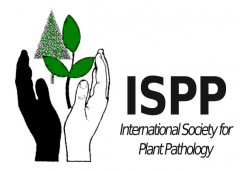PAOLO ALGHISI 19272015
F. Favaron, P. Magro, E. Porceddu, G.P. Martelli
doi: 10.4454/jpp.v97i1.3288
Abstract:
Paolo Alghisi, a former full professor of Physiological Plant Pathology in the University of Padua (Italy), passed away on January 7, 2015. He was born on September 23, 1927 in Treviso, where he completed the high school education before enrolling in the newly established Faculty of Agriculture of the University of Padua. He was the first student from this Faculty to graduate cum laude in 1951, discussing a thesis on infectious degeneration of the grapevine, produced under the guidance of Prof. Carlo Alberto Ghillini. His scientific career began as an assistant to the Chair of Plant Pathology in the Faculty of Agriculture, where his interest turned first to the study of the aetiology of “Rizomania” of sugar beet, to whose epidemiology he gave a substantial contribution by establishing a connection between the disease and a plasmodiophorous fungus later identifed as its vector. During this tenure, P. Alghisi devoted himself also to the setting up of the Institute of Plant Pathology and expanded his scientific interests, organizing and leading a group of young scientists belonging to the University and to the attached Research Centre for Sugar Beet Diseases of the National Research Council. In fact, as from 1960, P. Alghisi focused his activity on the cellular and biochemical interactions between plants and microbial parasites, in the attempt to understand the chemistry of hyper-auxiny genesis in the pathosystem Ustilago zeae/maize. These studies contributed very much to the development in Italy of Physiological Plant Pathology, a then emerging discipline. Later, his research efforts were devoted to the study of the role of pectin-degrading enzymes in pathogenesis, thus promoting the advancement of molecular plant pathology. In 1962, P. Alghisi obtained the advanced degree “Libera Docenza” in Plant Pathology and, in 1968, was appointed full professor of Physiological Plant Pathology in the University of Padua, a position that he kept until his retirement in 2002.




